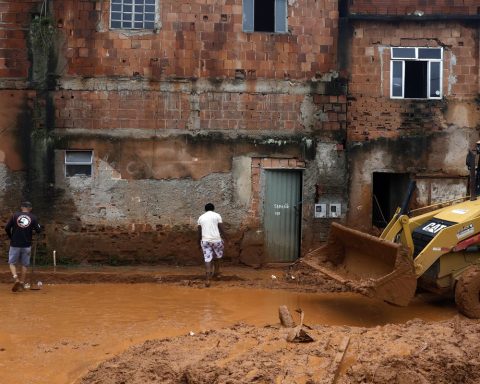Jared Laurels and Jessica Xanthomilla
Newspaper La Jornada
Saturday June 4, 2022, p. eleven
Five days in advance, the Ministry of the Environment and Natural Resources (Semarnat) convened, on June 2, the public information meeting of the environmental impact statement (MIA) of the Mayan Train project, section five south, which will from Playa del Carmen to Tulum.
The session will take place on Tuesday the 7th of this month at the Casa Ejidal, located in the Ejido Jacinto Pat, in the municipality of Tulum, Quintana Roo, the agency indicated through the Ecological Gazette. Academic institutions, researchers, social and productive groups, non-governmental organizations and society in general may participate.
The MIA for section five of the railway indicates that there will be no significant effects, since is feasible in environmental and legal terms
, and its potential impacts can be mitigated. The document that Fonatur delivered to Semarnat on May 17, for its evaluation, specifies that land use change will be made in 485 hectares of jungle.
The procedure must be resolved in 60 business days, although it can be extended twice. Fonatur has not yet presented the MIA for section five, from Cancun to Playa del Carmen.
Semarnat pointed out that the objective of the meeting is that Fonatur report and expose the technical environmental aspects of the document, the possible environmental impacts and risks that would be caused by the execution of the works and the prevention and mitigation measures that would be implemented
.
Meanwhile, the Special Rapporteurship on Economic, Social, Cultural and Environmental Rights (Redesca), of the Inter-American Commission on Human Rights, expressed concern about the processes to execute the Mayan Train project.
In its 2021 annual report, it warned about the various challenges that Mexico faces in terms of access to water, droughts and atmospheric pollution.
Regarding the Mayan Train, he said that he had received data from civil society that claims that the methodology and approach by the State violates the rights of the ejidos and other towns that are already in the territory
.
In particular, they explained to him that the expropriation processes where the train tracks are given way would not be fully legitimate and people would be forced out of their homes without any culturally appropriate alternative
.
In the framework of the climate emergency and its impacts on human rights, Redesca referred to a study published in early 2021, carried out by University College London, which showed that Mexico leads the 10 countries with the highest proportions of deaths attributable to climate change. air pollution from burning fossil fuels in Latin America, with 10.7 percent.
He indicated that in Mexico, with data from 2019, about 17,800 deaths would be attributable to poor air quality, according to the Institute of Evaluation and Metrics for Health.

















